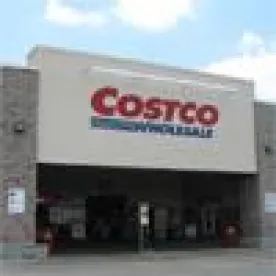Recent years have seen a barrage of class action lawsuits alleging that group health plan continuation coverage election notices, required under the Consolidated Omnibus Budget Reconciliation Act (COBRA), are deficient in one or more respects. The notices provide employees and their beneficiaries who participate in an employer’s group health plan with the option to elect to continue their coverage following a COBRA qualifying event (e.g., termination of employment, reduction in hours, divorce). These class action lawsuits all claim that the COBRA coverage election notices failed to include all the information required by the COBRA regulations or that they deviate in some manner from the model notice provided by the US Department of Labor (DOL). While these claims may sometimes seem trivial, courts have been reticent to dispose of them in a summary manner, e.g., by failing to certify the class. Once a class is certified, a defendant company faces the prospect of a long and costly defense.
A class action lawsuit brought against Costco Wholesale Corporation (Costco) in the US District Court for the Southern District of Florida illustrates the stakes and provides some valuable lessons. The putative class includes 38,818 former Costco employees who received Costco’s COBRA notice and elected not to enroll in continuation coverage.
IN DEPTH
John G. Baja (Baja) received Costco’s notice of his option to elect COBRA continuation coverage after the termination of his employment. On February 18, 2022, Baja sought approval of a class action settlement with Costco to resolve claims that Costco’s COBRA coverage election notice failed to meet applicable COBRA requirements. The settlement would require Costco to pay $750,000. (This would result in a $9.72 payment to each class member after attorney fees, costs and settlement administration fees are deducted from the gross settlement amount.) The settlement, once approved, will join a long line of settlements brought under the theory that an employer is liable for statutory and actual damages if its continuation coverage notice does not strictly adhere to COBRA’s requirements.
Baja’s complaint included the following allegations:
- Costco’s COBRA continuation notice is not “written in a manner calculated to be understood by the average plan participant” in violation of the applicable COBRA standard.
- Costco’s COBRA continuation notice contained misleading threats of potential criminal penalties and omits information that is otherwise required to be included in a COBRA continuation coverage notice.
- Costco breached its fiduciary duty by failing to provide Baja with a proper COBRA continuation coverage election notice.
The rule on which Baja relies lists more than a dozen items of information that a proper COBRA continuation notice must contain. In order to assist plans to satisfy their COBRA notice obligations, DOL has issued a model COBRA continuation coverage election notice (the Model Notice).
BENEFIT-RELATED CLAIMS AND THE CONTENT OF THE COBRA NOTICE
Baja, like the named plaintiffs in other similar cases, asserts that any employer that fails to include every element required by the COBRA regulations or that fails to use the Model Notice is liable for damages of up to $110.00 per participant per day. Costco sought to dismiss the Baja complaint on the grounds that Baja lacked standing because he failed to allege causation, i.e., that any information omitted from Costco’s COBRA continuation notice did not cause Baja any real harm. (The court failed to rule on Costco’s motion before a settlement was reached.) Although Costco’s position holds some appeal, courts have generally declined to dismiss these sorts of cases before there is an opportunity for the plaintiffs to engage in discovery. The rationale often advanced is that the applicable provision of the law says that the notice “shall contain” the enumerated items. Courts are therefore inclined to strictly construe the statute.
The question of whether strict adherence to the enumerated elements of a COBRA continuation notice is required is central to the Baja case and similar cases. The US District Court for the Middle District of Florida has expressed skepticism, saying that a “bare procedural violation of a statute is not enough to show concrete harm.” On the issue relating to the specificity with which a COBRA continuation notice must identify the plan administrator, the court sided with Costco. The court dismissed claims based on allegations that the COBRA continuation notice did not name the plan administrator.
The Model Notice lends further support for the argument that good-faith compliance is sufficient to avoid liability for an allegedly deficient COBRA continuation coverage notice. It does not contain all the required information. Rather, it omits the requirement to include an explanation of the consequences of failing to enroll in COBRA continuation coverage. The Model Notice also features a preamble referencing a good-faith standard, i.e., “[DOL] considers use of the model election notice to be good faith compliance with the election notice content requirements,” and it continues to state, “use of the model notice isn’t required.” Nevertheless, plaintiffs have been able to obtain substantial settlements in these types of cases.
Some recent district court orders have narrowed the issues in COBRA continuation coverage notice cases. For example, district courts have stated that the plan administrator does not have to be named in a COBRA continuation coverage notice if there is another party responsible for the administration of continuation coverage benefits. But courts are still permitting claims based on regulatory allegations that a COBRA continuation notice “is not written in a manner calculated to be understood by the average plan participant,” even where the alleged confusion regarding the notice is based on strict noncompliance with the DOL’s regulations and the Model Notice or accurate statements of law that are not specifically required.
CLAIMS BASED ON BREACH OF ERISA FIDUCIARY DUTIES
Baja, also like the named plaintiffs in other similar cases, made a claim under the Employee Retirement Income Security Act’s (ERISA) fiduciary rules. These rules impose on fiduciaries of ERISA-covered plans (which usually include the company that sponsors the plan) the obligation to act “solely in the interest of participants and beneficiaries, for the exclusive purpose of providing benefits to participants and their beneficiaries.” Costco moved to dismiss the claim because it simply duplicates Baja’s other claims for benefits.
The interaction of the enforcement portions for ERISA benefit claims and ERISA fiduciary claims has a long and complicated history. Courts often refuse to allow a plaintiff or class of plaintiffs to proceed under both provisions for the very reason urged by Costco, i.e., that the claims are duplicative. Following this line of reasoning, the court dismissed this breach of fiduciary duty claim. The court was of the view that the plaintiff already had an adequate remedy. Most courts seem to agree, ruling that fiduciary breach claims do not provide an avenue for relief where a viable damages claim exists.
NEXT STEPS
The lessons are clear: Companies subject to COBRA should pay attention to their COBRA notices and procedures and encourage their vendors and service providers to do so as well. These are not difficult rules with which to comply, the effort is minimal and the cost of inattention can be very high.






 />i
/>i
